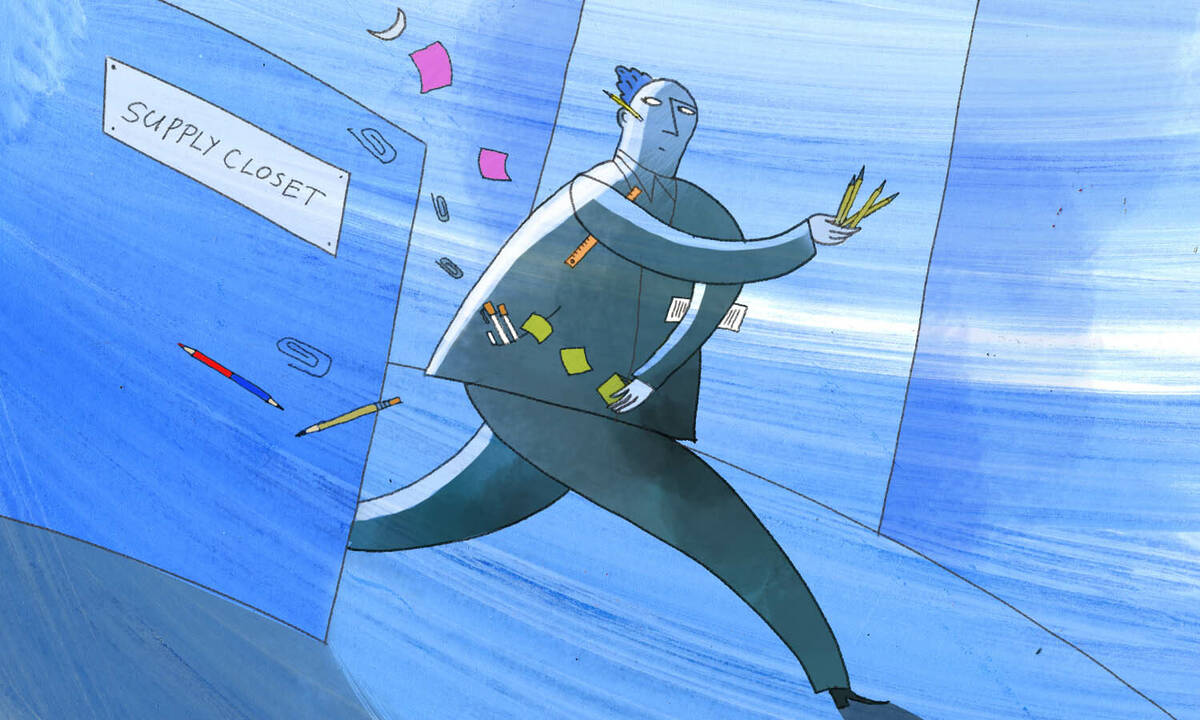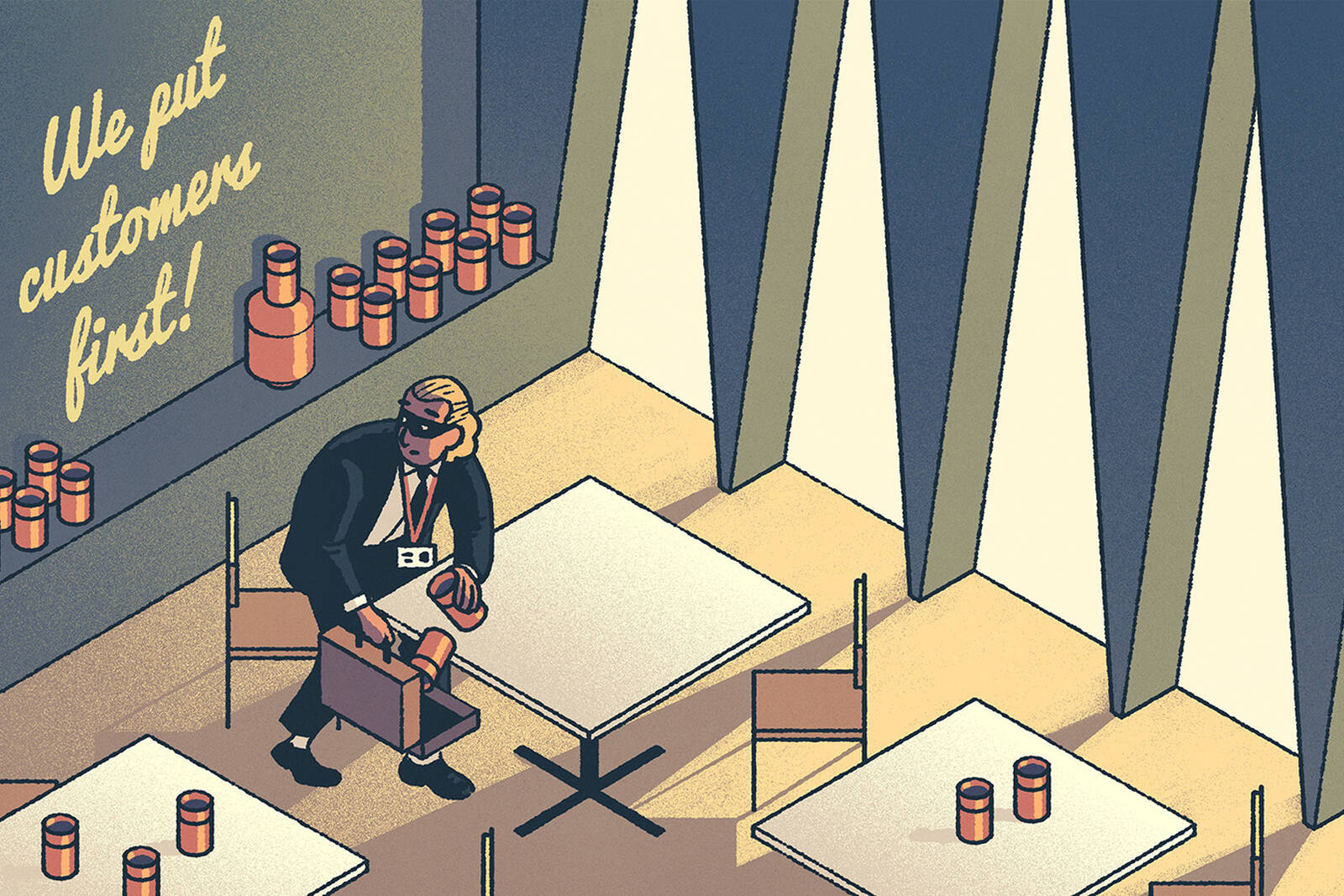Organizations Oct 1, 2022
How Comments Like “Man Up” Can Lead to Misbehavior at Work
While the problem extends beyond the workplace, organizations would be wise to consider the consequences of using emasculating language.

Yevgenia Nayberg
“Man up.” “Come on, bro. Don’t be such a wimp.” “Take it like a man.”
These are more than just rude comments. For men, being on the receiving end of emasculating taunts from coworkers or superiors can increase misbehavior in the workplace, such as arriving late, working slowly, being rude to colleagues, or submitting false receipts for reimbursement.
That’s the finding of new research from Maryam Kouchaki, a professor of management and organizations at the Kellogg School, and her coauthors, Keith Leavitt of Oregon State, Luke (Lei) Zhu of York University, and Anthony Klotz of UCL School of Management.
Interestingly, gender threats—which, in this case, refer not to issues such as sexual harassment, but rather to having one’s status as a man or woman questioned—don’t affect women in the same way. When women are told they aren’t behaving in stereotypically feminine ways, their bad behavior does not increase, the researchers found.
The difference in behavior between men and women is likely related to the way many cultures envision masculinity as compared with femininity. “There’s this idea that manhood is fragile,” explains Kouchaki. “You have to earn it or build it—it’s work to be done.” There’s now a growing body of research devoted to this phenomenon, which scholars have dubbed “precarious manhood.”
When their masculinity is threatened, this literature shows, men try to reassert it through aggressive behavior. In a bar, this might manifest as throwing a punch; at work, in nasty comments or petty theft.
Understanding Workplace Gender Threats
As an initial test of their hypothesis, the researchers conducted an online survey of 200 working adults in the U.S.—half men, half women. Participants rated how strongly they agreed with a series of statements designed to assess workplace gender threats, such as “Sometimes I wish I had a job that was more manly/feminine” and “Others in my workplace have publicly questioned my manhood/womanhood.” They also rated their overall level of job satisfaction.
Then, participants indicated how frequently they engaged in a variety of workplace misbehavior, such as submitting a falsified receipt for reimbursement or publicly embarrassing a colleague.
There is research showing that across many cultures, “manhood represents a precarious and elusive social status, and it is relatively hard-earned and easily lost.”
— Maryam Kouchaki
In their analysis, Kouchaki and her colleagues found a strong correlation between threats to masculinity and bad behavior. (They controlled for overall job satisfaction, which might influence people’s tendency to act out at work.) The researchers also identified a much weaker correlation between threats to femininity and bad behavior. However, this correlation was so weak that they weren’t convinced it was real.
To investigate the issue more deeply, the researchers designed an online experiment. A group of 194 participants in the U.S., evenly split between men and women, was assigned to write about either a time their manhood or womanhood was called into question or, as a control, about their dinner the previous night. Then, as a test of deviance, participants played a partner game designed by economist Uri Gneezy that financially incentivizes selfishness and lying and penalizes cooperation and truth-telling. Participants who told the truth would likely earn 25 cents, while participants who lied would likely earn 50.
For men, writing about gender threat increased lying: 71.4 percent of men in the gender-threat group lied in the partner game, as compared with 52.5 percent of men in the control group. For women, there was no significant difference in lying behavior between the gender-threat group (51.3 percent) and the control group (61.7 percent).
Real-world Threats and Misbehavior
The survey and online experiment provided intriguing evidence that men sometimes lash out under gender threat, but the researchers wanted to see what would happen in real-world conditions. They also wanted to distinguish between the effects of gender threats specifically and more general threats to their sense of intelligence, independence, and social standing (or, as psychologists would say, their “self-integrity”—a term that encompasses these feelings).
The researchers recruited 131 workers at a textile factory in China to complete a study that involved twice-daily surveys for six days. While gender threats are going to be interpreted differently in different regions and cultures, there is research showing that across many cultures, “manhood represents a precarious and elusive social status, and it is relatively hard-earned and easily lost,” Kouchaki says.
In the morning, participants received one of three different prompts: they were asked to write about either an experience of gender threat, a time their safety had been threatened (a different kind of threat to self-integrity), or their dinner the previous night. Each participant received each prompt twice during the study. After completing the writing task, participants answered questions designed to assess their feelings of competence, relatedness, and autonomy. The evening survey always included the same questions about unethical workplace behavior that day.
This time, the researchers did not find a direct connection between gender threats and misbehavior in either men or women. They suspect this may be because of the time lag between the experimental manipulation and the evening survey, and plan to explore the question more in future research.
However, they did find some preliminary evidence for why gender threats might cause men to lash out. Threats to masculinity, they discovered, reduce feelings of autonomy for men but not for women. By acting out at work, men may be trying to regain the control taken from them, as precarious-manhood theory predicts.
Rethinking Masculinity
Kouchaki notes that these findings shouldn’t be interpreted to mean that because women experience less gender threats than men do, they have it easy at work. “Sexual harassment and other issues women face are very salient and important,” she says. Additionally, she points out that nonbinary workers likely face their own, unique set of gender threats in the workplace, which was beyond the scope of this study, because the sample size was too small.
However, it’s important to understand how men act and react in the workplace, especially at a time when “there’s this narrative about companies and industries with really competitive cultures and ‘bro culture,’” Kouchaki notes. These kinds of environments are likely to fuel manhood threats—and therefore misconduct. “We have to be aware of what leads to this type of threat and avoid it,” she says.
Kouchaki and her colleagues suggest that to steer clear of this danger, male leaders in particular should take care to promote positive, ethical work cultures. Human-resources professionals may want to consider framing trainings about sexism and male privilege in ways that won’t inadvertently backfire by causing men to feel threatened.
But ultimately, broader cultural shifts may be most important. Perhaps, in a world with a broader idea of acceptable masculinity, threats to manhood wouldn’t feel so significant or have such negative effects. “Thinking about the culture and the socialization process is really important,” Kouchaki says.
Susie Allen is a freelance writer in Chicago.
Leavitt, Keith, Luke (Lei) Zhu, Anthony Klotz, and Maryam Kouchaki. 2022. “Fragile or Robust? Differential Effects of Gender Threats in the Workplace among Men and Women.” Organizational Behavior and Human Decision Processes. 168.



